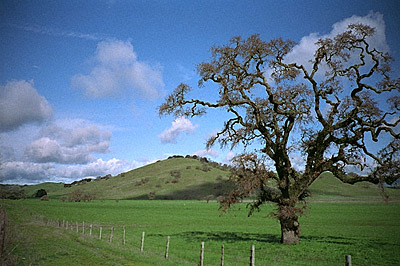 by Flemming Funch by Flemming Funch
Ned Hamson passed on a mention of a new book by Parker Palmer: A Hidden Wholeness. I haven't heard of him, or read his previous books, but various snippets in the blurbs about them speak to me, and to something I just happened to be thinking about at the moment. You know, how to just be yourself and follow your own calling. So, here are some things others are saying about the man's writings:The old Quaker adage, "Let your life speak," spoke to author Parker J. Palmer when he was in his early 30s. It summoned him to a higher purpose, so he decided that henceforth he would live a nobler life. "I lined up the most elevated ideals I could find and set out to achieve them," he writes. "The results were rarely admirable, often laughable, and sometimes grotesque.... I had simply found a 'noble' way of living a life that was not my own, a life spent imitating heroes instead of listening to my heart."
Thirty years later, Palmer now understands that learning to let his life speak means "living the life that wants to live in me." It involves creating the kind of quiet, trusting conditions that allow a soul to speak its truth. It also means tuning out the noisy preconceived ideas about what a vocation should and shouldn't be so that we can better hear the call of our wild souls. ...
Palmer seeks to help us "rejoin soul and role," so that individuals and communities can be healed from the ravages of consumerism, injustice and violence. No small task, yet in classic Palmer style, this mission is fleshed out with stories, poems, personal confessions and a plan--concrete steps for creating "circles of trust" where honest, open sharing allows each person's "inner teacher" to show up. (Ground rules: "no fixing, no saving, no advising, no setting each other straight.") Palmer's concern is that too many people have "divided lives," with personal values that don't match what they are asked to do in the world to succeed. ...
Never naive, Palmer warns that these "circles of trust" are not management tools that organizations can force on employees for some grand motive, such as crisis control or increased productivity. They are the opposite of quick fixes--places where we sit and wait for our souls to tell the truth. ...
Here he speaks to our yearning to live undivided lives--lives that are congruent with our inner truth--in a world filled with the forces of fragmentation. ...
This is a personal, human, moving, insightful, practical work on the discovery of True Will, and living life in conformity with it. ... and some quotes from what he actually wrote himself:"Before you tell your life what you intend to do with it, listen for what it intends to do with you. Before you tell your life what truths and values you have decided to live up to, let your life tell you what truths you embody, what values you represent."
"True self, when violated, will always resist us, sometimes at great cost, holding our lives in check until we honor its truth."
"...self-care is never a selfish act - it is simply good stewardship of the only gift I have, the gift I was put on earth to offer to others."
"The attempt to live by the reality of our own nature, which means our limits as well as our potentials, is a profoundly moral regimen."
"One dwells with God by being faithful to one's nature. One crosses God by trying to be something one is not. Reality - including one's own - is divine, to be not defied but honored." And, yes, it is about finding "the place where our deep gladness meets the world's deep need". Yes, I don't doubt it. There's a magic that is available by simultaneously connecting with what we're most inspired to do and what we notice most is needed in the world. And probably finding that they're one and the same thing. Every human being is very much needed in the world, and when we discover what we're needed for, and how exciting we find that to be, life has meaning. And we might live it undivided.
|
|
 by Flemming Funch
by Flemming Funch